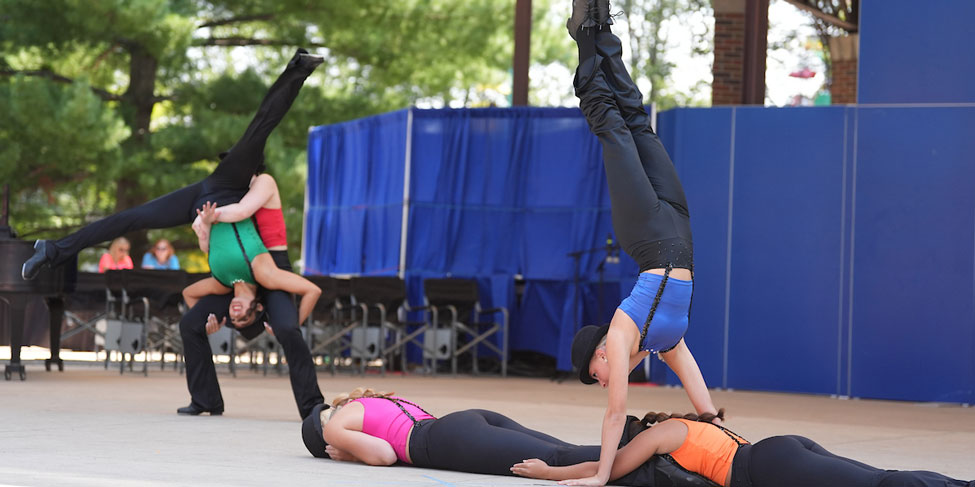Set the Stage for Iowa’s Stars
July 30, 2025
By April Pearson
Photo credits: Iowa State Fair/Matthew Putney
Let’s Start the Show
“Dad came up through newspaper and then into radio before television was readily available,” says Bill Riley Jr., director of the Bill Riley Talent Search and son of Bill Riley Sr. “In the late ‘40s, he was at the State Fair when television was first introduced, so he was kind of in the showbiz mix early on.”
Riley Sr. got the idea for a youth talent show in the mid-1950s, and by 1960, he hosted the first Bill Riley Talent Search at the Iowa State Fair. Featuring song-and-dance numbers, instrumental ensembles, vocal solos and more, the show became so popular that they had to change the time to avoid poaching audiences from other fair events.
Riley Jr. got involved in the show early. “When you first get your driver’s license, you think FREEDOM, right? Well, not if you’re a Riley kid.” Like his siblings before him, Riley Jr. became his dad’s chauffeur, driving him to talent shows all over Iowa throughout the year, which immersed him in the performing arts.
Riley Jr. took over the Bill Riley Talent Search when his dad retired in 1997. “I'm not sure Dad thought this idea of a talent show would have the legs it has, but we’re in our 66th year, and we’re going to keep this thing rolling!” he says.
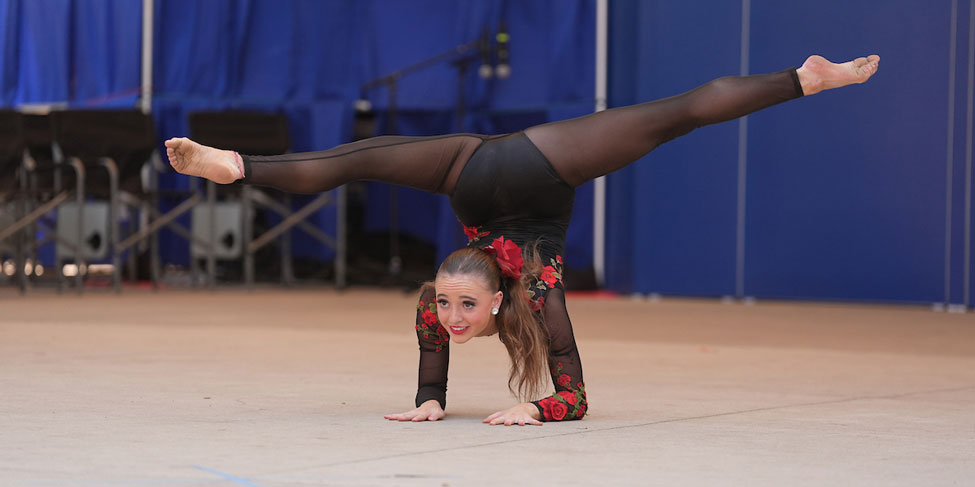 The Road to the Riley Stage
The Road to the Riley Stage
Throughout the year, the Bill Riley Talent Search holds nearly 100 qualifying programs across the state. There are two divisions: Sprout for kids ages 2-12, and Senior for kids ages 13-21. “We see thousands of youngsters compete,” says Riley Jr. “If they win in a qualifying show, they move on to the Iowa State Fair.”
Preliminaries take place during the first seven days of the fair, and the semi-finals are held over the next three days. The Championship Show, which takes place on day 11, showcases the best of the best. Six acts from the Sprout Division perform, and nine from the Senior Division compete for the top prize. All shows are at noon on the Anne and Bill Riley Stage.
Each panel of judges includes 4-7 dance, vocal and piano professionals with a master’s degree or higher. They’re all educators who reside in Iowa — and they care deeply about cultivating young people. “It's my job to make sure that our contestants have the best judges we can provide,” says Riley Jr., “and our judges, top to bottom, are wonderful.” It’s not uncommon for these artistic adjudicators to argue about who should win, and sometimes things get pretty heated. “They’re pleading their case for this tap quartet or that piano solo because they’re so passionate about what they do,” he says, “and I love that.”
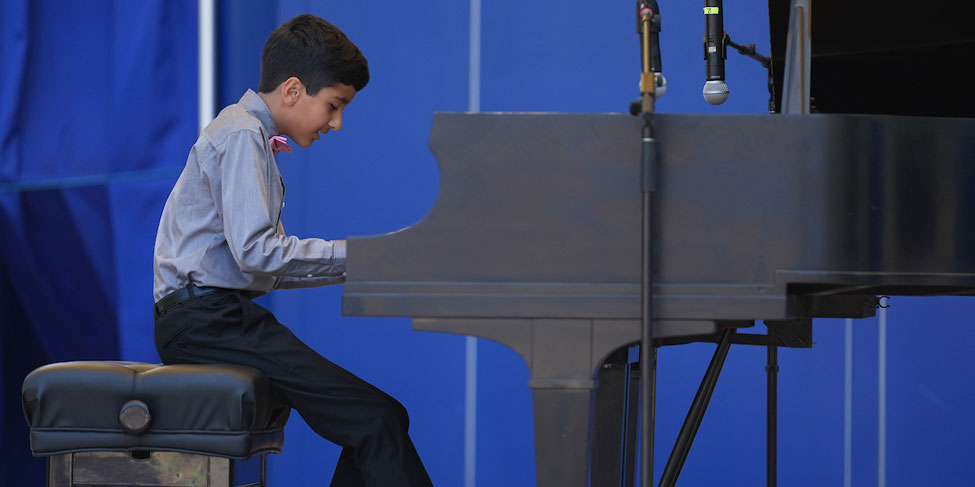 Behind the Curtain
Behind the Curtain
The benefits of competing in a Bill Riley Talent Search unfold in real time and beyond. Whether performers make it to the Championship Show or their journey ends at a county fair, they can be proud that they participated.
“Before we award the winners at each show, I always tell the kids that of course everybody wants to win, and of course they’ll be disappointed if they don’t,” says Riley Jr., “but it’s also important that they found the courage to get up on stage and take a swing at it, which is something I could never do at their age.”
The audience is equally encouraging, with parents, teachers, friends and previous competitors coming to cheer the kids on. “I'll meet a grandma or grandpa who’ll say, ‘We danced with your dad years ago!’ We’re going on four generations now,” says Riley Jr. Interestingly, some of the competitors’ biggest supporters are each other. “What’s really heartwarming is when there's a nervous child backstage, the older kids will come over and get on their level and say, ‘You can do this!’ It’s a beautiful program,” he says.
Riley Jr. also tells the story of a young pianist named Ty Stephany. He’d participated in the Sprouts Division until his family moved to South Dakota. Since he was no longer an Iowa resident and therefore ineligible to compete, he volunteered to help backstage. “There was a young vocalist whose music wouldn't play,” he says. “Well, Ty went out on the stage and talked to her. He sat down at the piano and started playing a song from memory. And the little girl said, ‘That’s it!’ So he accompanied her on the piano so she could sing.”
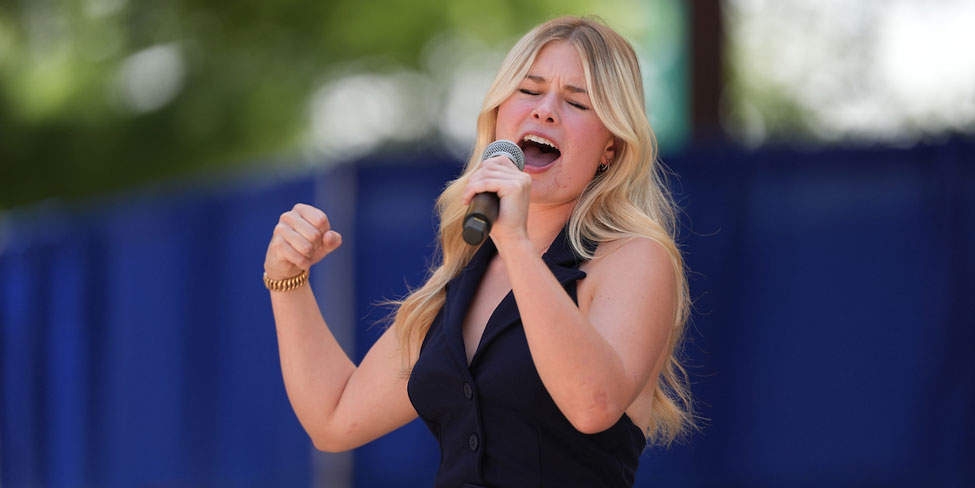 In the Spotlight
In the Spotlight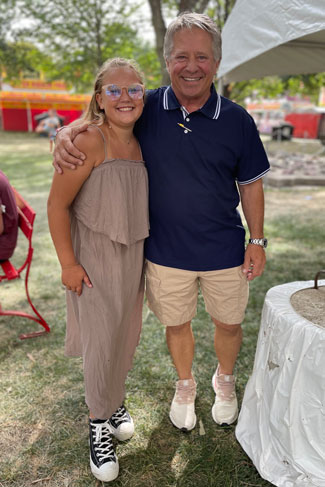
Another youngster who’s benefited from the Bill Riley Talent Search is Addison Denekas. “I've been singing for as long as I can remember,” says the 14-year-old, “so when I heard about the talent show when I was 12, I thought it sounded really fun.”
She competed in the Sprouts Division at the Hamilton County Fair in 2022, singing “How Great Thou Art” in the style of Carrie Underwood. “I had all the adrenaline and jitters you get when you're doing something for the first time. And then, when they announced I got first place, I was just ecstatic!” Not only did Denekas earn a spot to compete at the Iowa State Fair, but she also garnered a new fan.
“I did my little song, and afterwards, Bill came up to me with tears in his eyes and said, ‘That was amazing.’ Then I went to the State Fair, and he said, ‘Hi, Addi! You’re the girl who sang in Hamilton County!’ And that was really cool to have this person who actually remembers my name and really cares that I’m doing this.” While Denekas didn’t make it into the finals at the State Fair, she was pleased with her performance and happy to meet other talented kids.
In 2024, Denekas competed at the Hamilton County Fair again, this time in the Senior Division, where she placed third. She plans to try out again in 2026. In the meantime, she’s putting her pipes to good use in her church choir and her school’s theatre program. “Competing at the State Fair helped my confidence and social life,” she says. “Knowing that I could perform in front of thousands of people and do a good job felt amazing.”
The Importance of Performance
The unique talent that graces the Anne and Bill Riley Stage every year never ceases to amaze. “We’ve had magicians, ventriloquists, yoyo performers, a young man with a bullwhip,” says Riley Jr., “and we’ve also had terrific pianists, dancers and vocalists. It's just so much fun to watch because you don't know what's coming out next.”
Riley Jr. admits that he doesn’t have what it takes to dance, play or sing on stage. However, like his dad, he knows talent when he sees it. “The amount of math involved with playing the piano, singing a solo or memorizing a dance — all the planning, costuming and creativity…. When those lyrical dancers come off stage, they are breathless. They’re worn out, yet they make it look effortless.”
The performing arts have been known to help children develop cognitive function, athleticism, artistry and tenacity. What’s more, “Performing arts help build better citizens,” Riley Jr. says. “That’s why performing arts need to be supported and made available to youngsters. And I think that’s what I'm most proud of — giving those young people a chance.”
